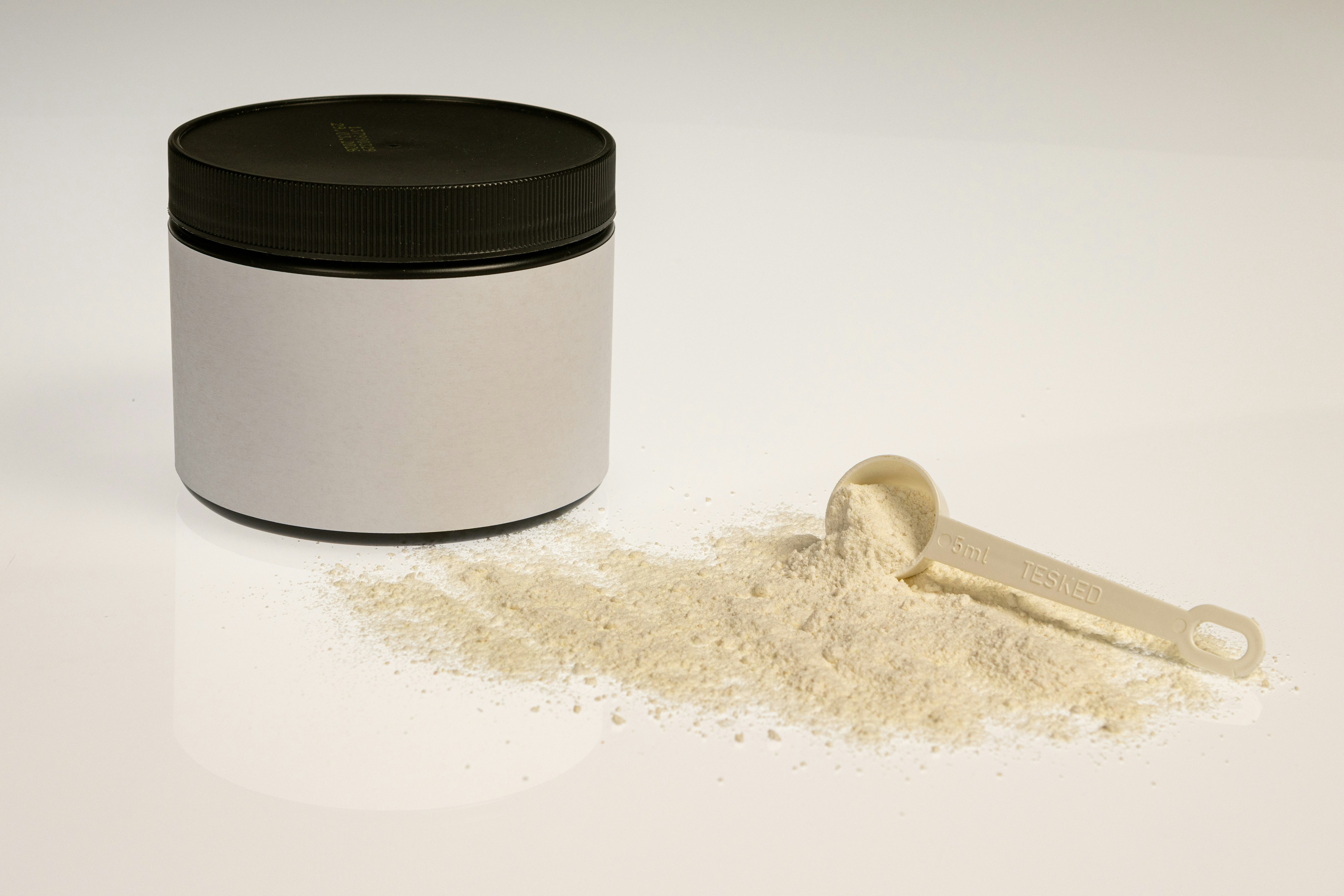Whey Protein vs. Plant-Based Protein: A Tough Choice
By Najla Zaidi | 07 Jul, 2025
Those looking to add muscle mass and overall vitality find different advantages and disadvantages from whey protein and plant-based protein.
When it comes to fitness and nutrition, protein is seen as the key macronutrient. It plays a crucial role in muscle growth, repair and overall health. But what type of protein is better? Let’s look at the pros and cons and then you can decide what type of protein supplement is best for you.
Whey is one of two proteins found in milk. When cheese is made, the whey is separated from the casein, the other protein found in milk. Whey protein powder is considered a complete protein since it contains all nine essential amino acids, the building blocks of protein. It also contains leucine, isoleucine, and valine, which are branched-chain amino acids (BCAAs) important for muscle building.
A 2022 study published in the British Medical Journal found that having whey protein before meals helped in the management of blood sugar in type 2 diabetics. The study found that just a small amount of whey helped to reduce the time spent in hyperglycemia (high blood sugar) compared to a placebo. The addition of whey protein has also been associated with helping lower blood pressure in prehypertensive individuals and may also play a role in controlling cholesterol. Whey may be an ideal protein supplementation source for senior citizens as well. A 2018 randomized controlled trial found that whey protein was highly effective in helping older individuals regain muscle mass after inactivity or prolonged illness.
Whey protein also wins out in moderate-intensity exercise. Older adults who supplemented with whey protein for 10 days before and 3 days after walking a very long distance, more than 12 miles, had lower levels of creatine kinase, a marker of inflammation and muscle damage, after the exercise compared to pea protein and control groups. This suggests that whey protein may be better in helping your body recover from physical activity, which can be especially important in helping older adults stick with an exercise program.
"Whey remains the most bioavailable and most complete protein source, particularly because it will always add good protein regardless of the product or brand,” says Juliana Tamayo, M.S., RDN, at Fitness Clone.
With all its benefits, whey protein also has a few drawbacks to consider. Whey protein is derived from milk and may not be suitable for those with dairy allergies, particularly those with lactose intolerance. Some individuals may also experience digestive discomfort, such as bloating or gas. Whey protein is an animal-based product and therefore not suitable for vegans. Whey protein also still makes demands on the intensive dairy industry, thus not being as bio-friendly.
Plant-based protein powders are derived from various types of plants, commonly brown rice, pea, soy, and hemp. Pea protein is rich in iron while soy protein is the only single plant-based option that is complete with all nine essential amino acids. A powder may be made from one type of plant or a combination of plants. Plant-based protein powders can also be complete proteins and contain high amounts of leucine, if they contain two or more plant proteins or are fortified with BCAAs.
Pea protein may aid in building muscle, especially when paired with strength training. A 2015 study found that pea protein consumption in individuals engaging in resistance training resulted in more muscle thickness compared to placebo. Pea protein has also been found in studies to be beneficial in individuals with kidney disease and may also assist with lowering blood pressure. In another study on soccer players, pea protein came out slightly ahead of whey protein, but the authors concluded both pea protein and whey protein produced similar results on markers of recovery.
Plant-based protein is also vegan friendly and is hypoallergenic and free of allergens, making it an optional source for individuals with food allergies and intolerances. "Plant-based proteins tend to be easier to digest for individuals with chronic illnesses, such as Crohn's disease," says Tamayo. It is also beneficial for people interested in foods with less fat and more fiber and as an alternative to whey protein in cases of excess gas or bloating. Plant-based proteins are more sustainable and align with ethical concerns about animal agriculture. However, plant-based proteins still have cons as well.
Some plant-based proteins may lack one or more essential amino acids. Plant-based proteins may be absorbed more slowly than whey protein. In addition, plant-based proteins can have a gritty texture or a strong taste that some find unappealing. Plant-based protein powders, especially those containing pea protein, can cause bloating and cramping if you have irritable bowel syndrome or are sensitive to FODMAPs.
Both whey protein and plant-based supplements have their pros and cons, so the verdict comes down to you. When making your decision, consider your nutritional goals, digestive sensitivities, ethical choices and dietary preferences. Whether you opt for whey protein or plant-based protein, both can play a vital role in supporting your fitness journey and overall health.
When making your decision, consider your nutritional goals, digestive sensitivities, ethical choices and dietary preferences.

Protein supplements aid in achieving optimal health.
Articles
Asian American Success Stories
- The 130 Most Inspiring Asian Americans of All Time
- 12 Most Brilliant Asian Americans
- Greatest Asian American War Heroes
- Asian American Digital Pioneers
- New Asian American Imagemakers
- Asian American Innovators
- The 20 Most Inspiring Asian Sports Stars
- 5 Most Daring Asian Americans
- Surprising Superstars
- TV’s Hottest Asians
- 100 Greatest Asian American Entrepreneurs
- Asian American Wonder Women
- Greatest Asian American Rags-to-Riches Stories
- Notable Asian American Professionals

